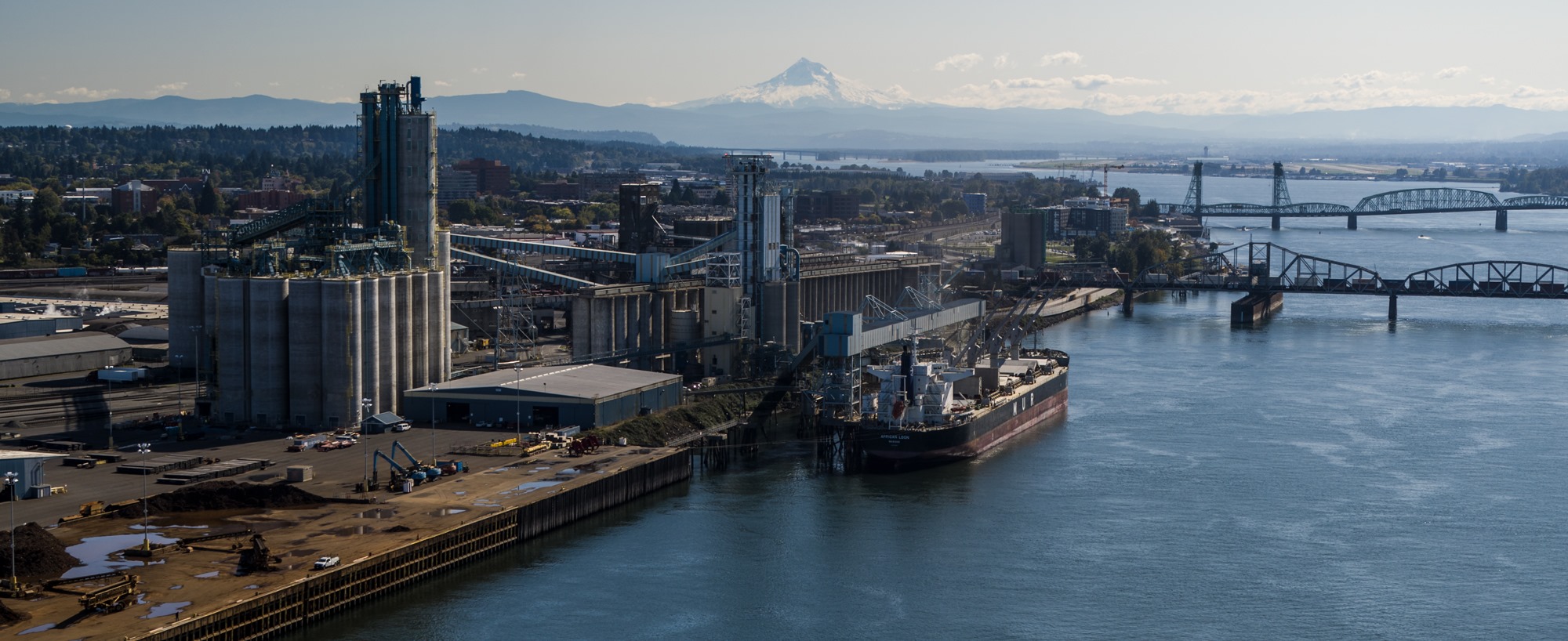U.S. Wheat Supply Chain System: Exporters, Inspectors and USW Overseas Offices
By Michael Anderson, USW Assistant Director, USW West Coast Office
At the core of the U.S. Wheat Associates (USW) mission is a strong commitment to enhance the value of U.S. wheat for farmers and their customers. A large part U.S. wheat’s value-added differential advantage is the U.S. wheat supply chain system. It is system that ultimately works for wheat food consumers around the world. But it is also complex and therefore most effective when farmers, end users and everyone in between have a better understanding of how it works for them.
Once the wheat has arrived at the port by truck, rail or barge, grain exporters work around the clock to meet customer contract requirements. Through the futures market and a network of facilities up country, exporters are able to bring the right wheat to the export facility for blending, inspection and loading while managing their own price risks. This diverse network allows exporters to meet diverse and varied cargo requirements. USW helps exporters meet diverse and varied cargo requirements by connecting them and facilitating communications with customers worldwide.
As the wheat is loaded from the export facility to vessels, the law requires inspection by the Federal Grain Inspection Service (FGIS) to certify that the wheat loaded for export meets the quality standards specified in the customer’s contract. Created in 1976 by the U.S. Congress, FGIS is responsible for establishing and upholding standards for quality assessments and managing the grain inspection and grading procedures. FGIS also maintains equipment standards and manages the network of federal, state and private laboratories that provide impartial inspection and weighing services. The United States is the only wheat exporter with an independent, neutral grain inspection system, which is valued by its overseas customers and has helped wheat and other U.S. commodities grow export markets.
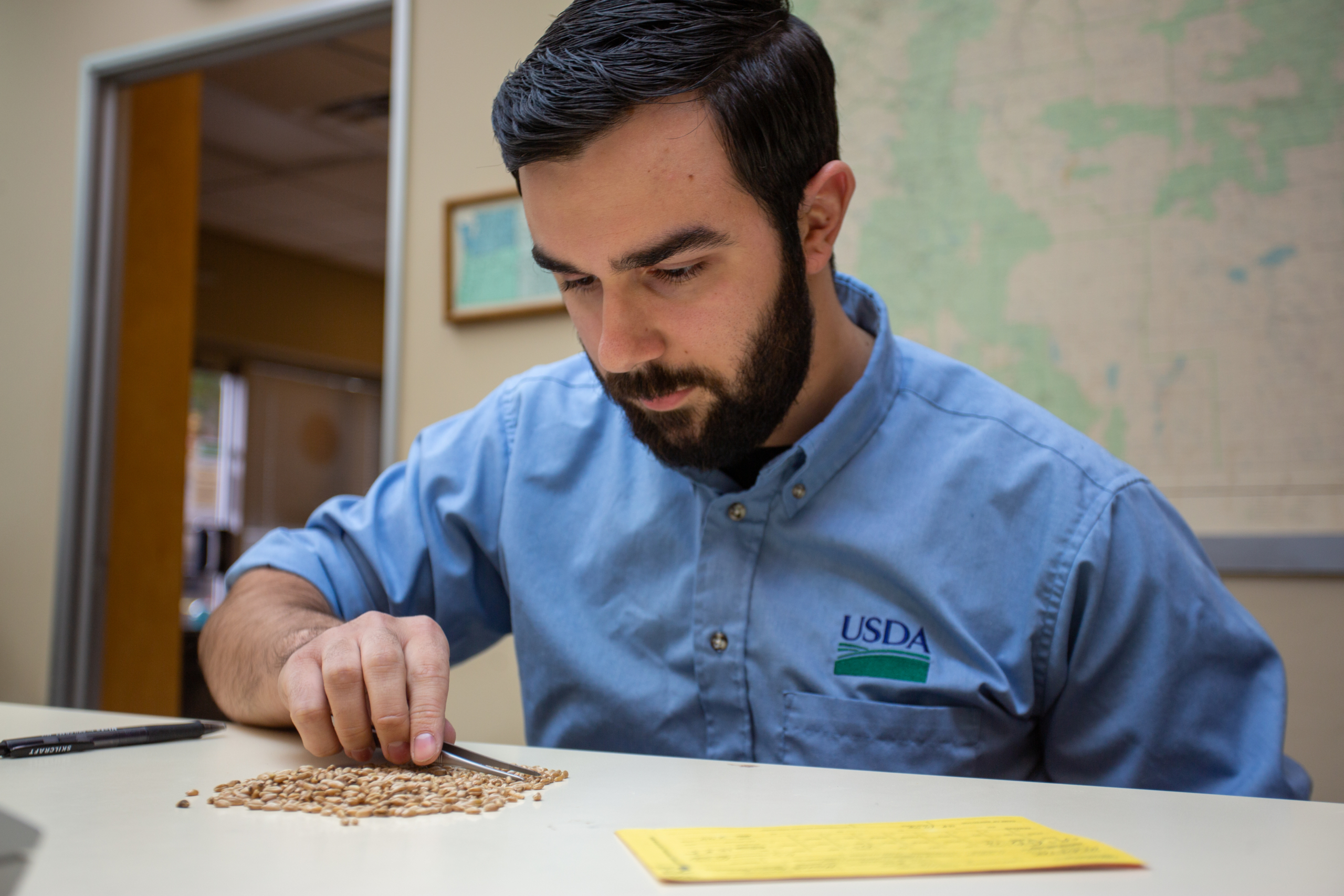
The Federal Grain Inspection Service (FGIS), as an objective third party, certifies that all exported wheat meets import specifications.
For end users of imported wheat, understanding what you need is key to producing what you want, which is why USW’s network of 15 offices across the world, including two in the continental United States, is the final step in the U.S. supply chain. Each office works closely with customers, including buyers, millers, bakers, food processors and government officials, to promote the advantages of U.S. wheat quality, help troubleshoot issues and simplify the process of importing and utilizing U.S. wheat.
Peter Lloyd, Regional Technical Director, based in the USW Casablanca Office, notes that the cheapest improver for wheat flour is buying the right wheat in the first place. He knows that making a high quality, desired end product is what the customer wants and getting there starts with the right wheat and understanding how best to use it. USW technical experts work closely with customers to share technical information on U.S. wheat characteristics, address issues related to wheat functionality and help customers make better end products with U.S. wheat.
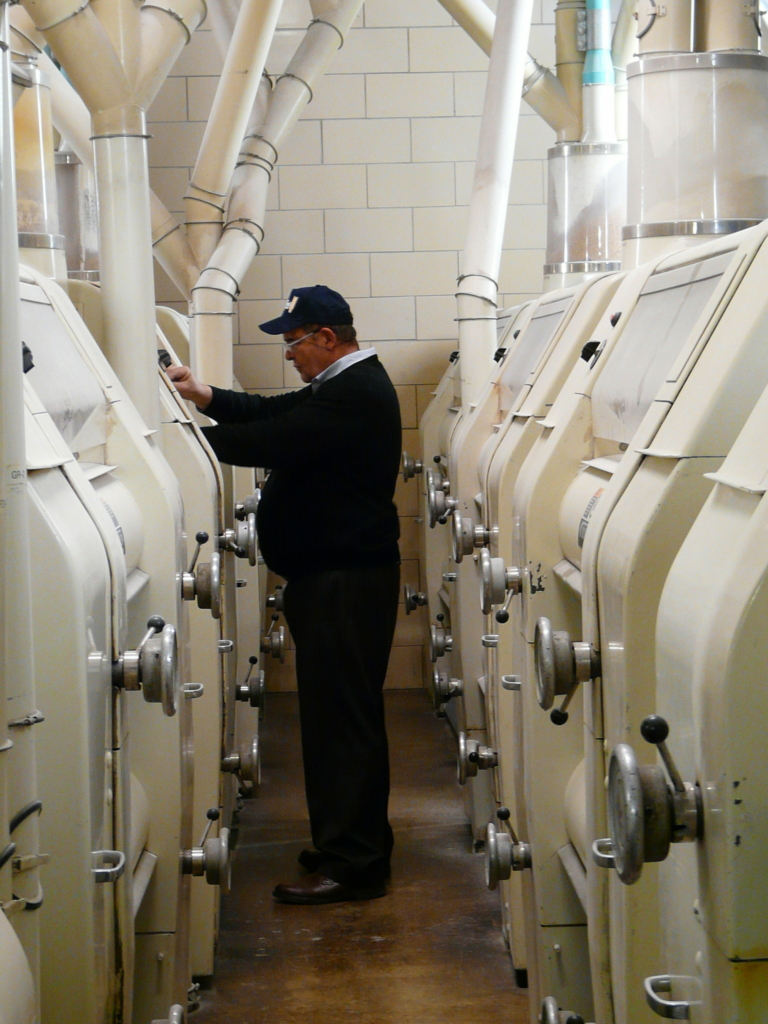
USW Regional Technical Director Peter Lloyd visits Mennel Milling, Fostoria, Ohio, Feb. 2016. Read more about Peter’s work here.
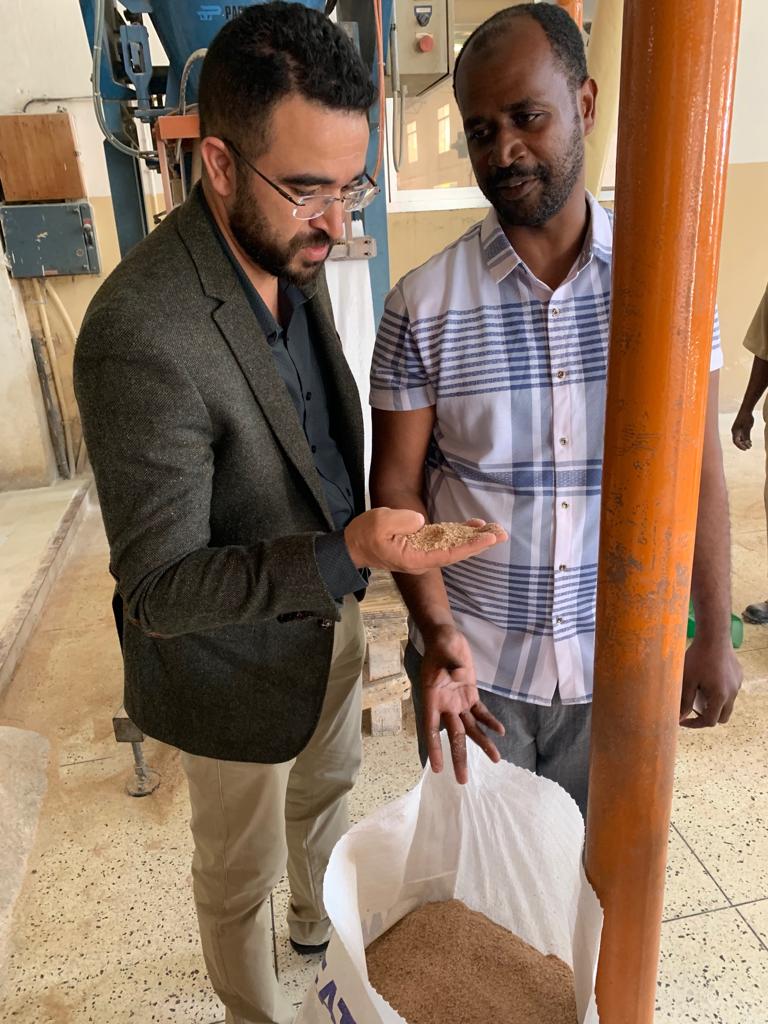
USW Milling & Baking Technologist Tarik Gahi touring the Bakhresa Mill in Zanzibar, Tanzania in 2019 and answering one of the chief miller’s questions about flour extraction and bran. Read more about Tarik’s work here.
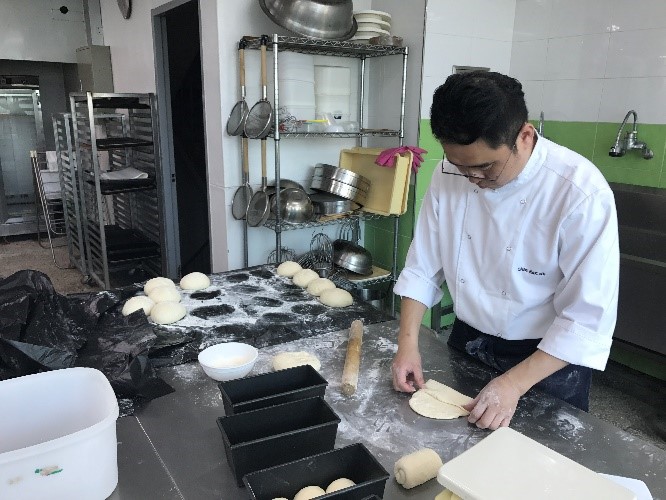
USW Food/Bakery Technologist David Oh in the laboratory at the Korean Baking School testing formulations of testing blends of HRW and SW flour for Korean-style baguettes and HRS and HRW flour for sweet buns in 2017. Read more about David’s work here.
USW representatives also raise the profile of wheat and note that only the United States offers six distinctly different wheat classes. Joe Sowers, Regional Vice President for the Philippines and Korea, notes that USW’s “philosophy for relating to industry participants is to put ourselves in their position and try to understand what they need to succeed. Then we maximize the number of positive contacts such as providing information, training or other resources to a customer. If everybody on the team is striving to make the most positive contacts possible, good sales follow. Good sales leads to better prices for our farmer stakeholders.”
USW has taken a global approach to increasing the profile of U.S. wheat. Alongside each stakeholder in the U.S. wheat supply chain, we too, take seriously our commitment to providing education, access, reliability and guidance in accessing the world’s most reliable wheat supply. It is through the commitment of dependable people, that we breed, grow, transport, inspect, export and promote the wheat the world needs.
Read other blog posts in this series:
Research and Breeding
Farmers and State Wheat Commissions
Grain Handlers

